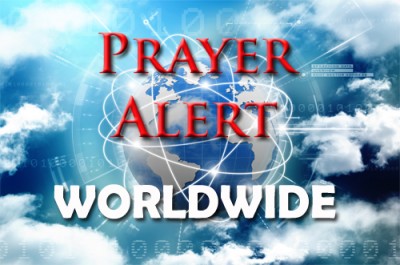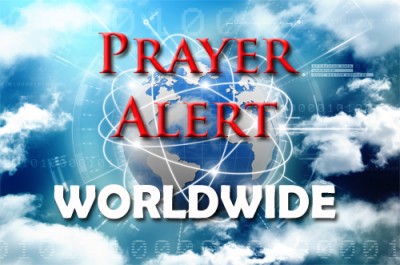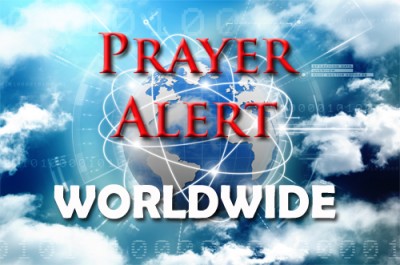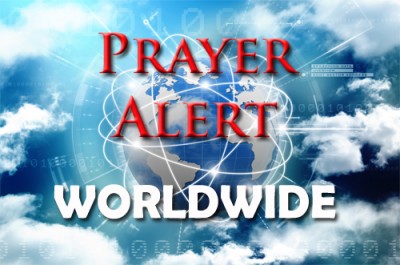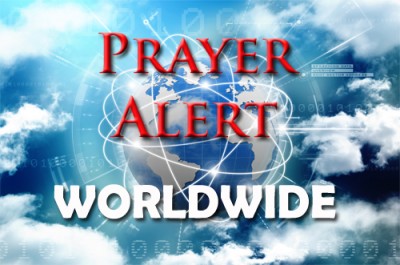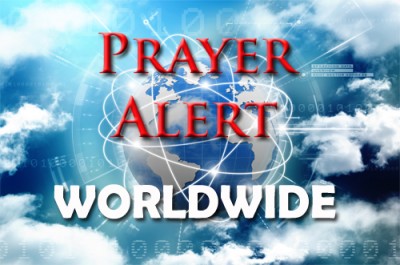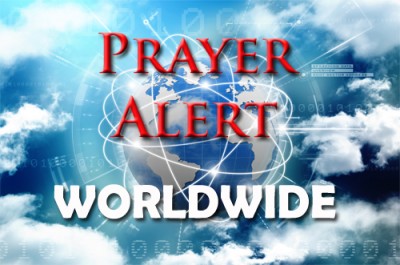Antigua and Barbuda: a huge crisis
29 Sep 2017A humanitarian crisis is developing on Antigua as a result of the devastation wreaked on Barbuda by Hurricane Irma, according to Prime Minister Gaston Browne. He told the UN General Assembly, ‘Overnight Antigua’s population increased by almost 3%. I know of no country that could easily cope with such an unplanned and unexpected increase in its population.’ In addition to providing shelter, accommodation, and basic necessities to the evacuated Barbudans, Antigua’s social services need to provide school places for an additional 600 children; medical services for many elderly; and a means of income for the able-bodied. Preliminary estimates place the cost of rebuilding Barbuda at £185 million - over 15% of the country’s GDP. The PM said it was a stretch beyond their reach: ‘Barbuda is not only a natural disaster, it is a humanitarian crisis that now consumes Antigua.’
Iraq: Kurds vote for independence
29 Sep 2017An email from a Kurdish Christian says, ‘On 25 September, in a landmark referendum, Kurds in three northern provinces of Iraq voted for independence for the Kurdistan region. Kurds are the fourth-largest ethnic group in the Middle East, but they have never obtained a permanent nation state. Kurds faced decades of repression before acquiring autonomy in 1991. 5.2 million Kurds and non-Kurds who were registered as resident in Kurdish-controlled northern Iraq voted, even though Iraq’s prime minister denounced the referendum as unconstitutional. Neighbouring Turkey and Iran also vehemently objected to it, fearing it will stoke separatist feeling among their own Kurdish minorities. Even the US government voiced serious concerns. Dear friends, we ask for your urgent and ongoing prayer, for wisdom for the Kurdish government leaders and peace in the region.’ For a media report on the situation, click the ‘More’ button.
North Korea: pray for Christian mission
29 Sep 2017In the 1940s, Christianity enjoyed tremendous growth in North Korea. By 1950 there were 2,850 churches, 700 pastors, and 300,000 Christians; Pyongyang was nicknamed ‘the new Jerusalem’. But the rise of Kim Il Sung to power changed everything, and religion was outlawed. There are stark similarities between Christianity and the Juche philosophy indoctrinated into every North Korean from birth. Replacing Father, Son, and Holy Spirit is a trinity of Kim Il Sung, his mother Kim Jong Suk, and his son Kim Jong Il. National laws are written in a style that resembles Mosaic law. Children are taught to give thanks to Kim Il Sung and Kim Jong Il for their food. Photos of the two adorn every house, as reminders of who supposedly cares for their needs. The World Centre for North Korea Missions connects people with North Korea, and facilitates mission training and projects.
South Sudan: severe malaria outbreak
29 Sep 2017The ministry of health in South Sudan has said that this year’s malaria is the worst the country has ever seen. Over 900,000 cases had been reported by 21 August. This life-threatening blood disease is transmitted through the bite of the Anopheles mosquito. Once an infected mosquito bites a human, the parasites multiply in the host’s liver before infecting and destroying red blood cells. More than 76% of disease-related deaths in South Sudan are from malaria. Authorities have stepped up efforts to fight the disease, but there is a lack of funds. Pray for the malaria victims in northern villages unreachable by road. Pray for the provision of mosquito nets for poor people who cannot afford to purchase their own. Pray for the majority of the population, who do not currently have access to health care or immunisation programmes, See also:
USA: praying for politicians
29 Sep 2017America’s intercessors are praying for the presence of God to invade the government and lifting Christians in government to His throne room. Examples are Vice President Mike Pence (‘Giving my life to Christ changed everything’) and CIA director Mike Pompeo (‘Pray and stand and fight and make sure that we know that Jesus Christ, our Saviour, is the only solution for our world’). Others are Ben Carson, the secretary of housing and urban development; Kellyanne Conway (counsellor to the President), whose faith plays a minute by minute part of her life; Reince Priebus, White House chief of staff; and Ken Blackwell, the domestic policy chair, who says his faith influences his decisions. The US ambassador to the UN, Nikki Haley, says her faith has a profound impact on her daily life, and that she looks to God for guidance in every decision.
Indonesia and Vanuatu: volcano eruption fears
29 Sep 2017Since 23 September, 122,500 people have been evacuated to locations outside a 7.5-mile exclusion area around Bali's Mount Agung volcano. The magma has been rising closer to its surface, as indicated by hundreds of daily tremors. The volcano, two miles above sea level, usually attracts hikers, tourists and pilgrims. Hundreds of volunteers have been deployed, according to the International Red Cross; they, and officials, are combing the area, urging villagers to evacuate, and raising warning banners around the exclusion zone. Additionally, on 27 September Mount Sinabung exploded, spewing ash 2.5km into the air over the island of Sumatra, and Vanuatu has ordered an island to be evacuated because of another volcano threat. See and
Brazil decades behind on inequality
29 Sep 2017Oxfam research shows that Brazilians earning the minimum wage would have to work for nineteen years to make as much as a rich person in Brazil’s top 0.1% makes in one month. At the current pace it would take Brazil 75 years to reach the UK’s current level of income equality. Oxfam had already reported that just six Brazilians own as much money as the poorest half of the country. ‘This is an unjust, unacceptable, and unsustainable situation,’ said Oxfam Brazil’s executive director. ‘We cannot dance around this any more; tackling inequality head-on is everyone’s responsibility. This report is our way of kick-starting this conversation.’ Experts say Brazil’s current situation is due to a backsliding tax system; racial and gender discrimination that erodes the rights of women and black Brazilians; a political system that concentrates power; and politicians highly prone to corruption.
Maecenas maximus tempor ligula
26 Sep 2019Maecenas maximus tempor ligula et eleifend. Curabitur tempor, velit nec vestibulum pulvinar, dolor nisl viverra diam, sit amet maximus tortor magna et tortor. Mauris eu arcu mauris. Integer commodo leo quis risus cursus, ut semper lacus euismod. Sed cursus facilisis elit sed faucibus. Etiam quis iaculis ante. Ut non orci diam. Mauris ac velit metus. Suspendisse mollis nisi ut molestie volutpat. Aliquam erat volutpat. Pellentesque bibendum tortor et metus pulvinar mattis.
Donec vulputate sapien arcu, at lacinia lorem vulputate eu. In posuere purus et magna aliquet porttitor. Nullam massa lectus, tincidunt vel massa at, maximus molestie tortor. Integer rutrum ante sapien, eu ornare tortor interdum sed. Duis vitae dapibus quam. Aliquam nec ex vel libero maximus suscipit sed quis risus. Maecenas ullamcorper dui quis lectus mollis consectetur quis et orci. Ut sapien arcu, posuere id rutrum eget, elementum eu leo.
